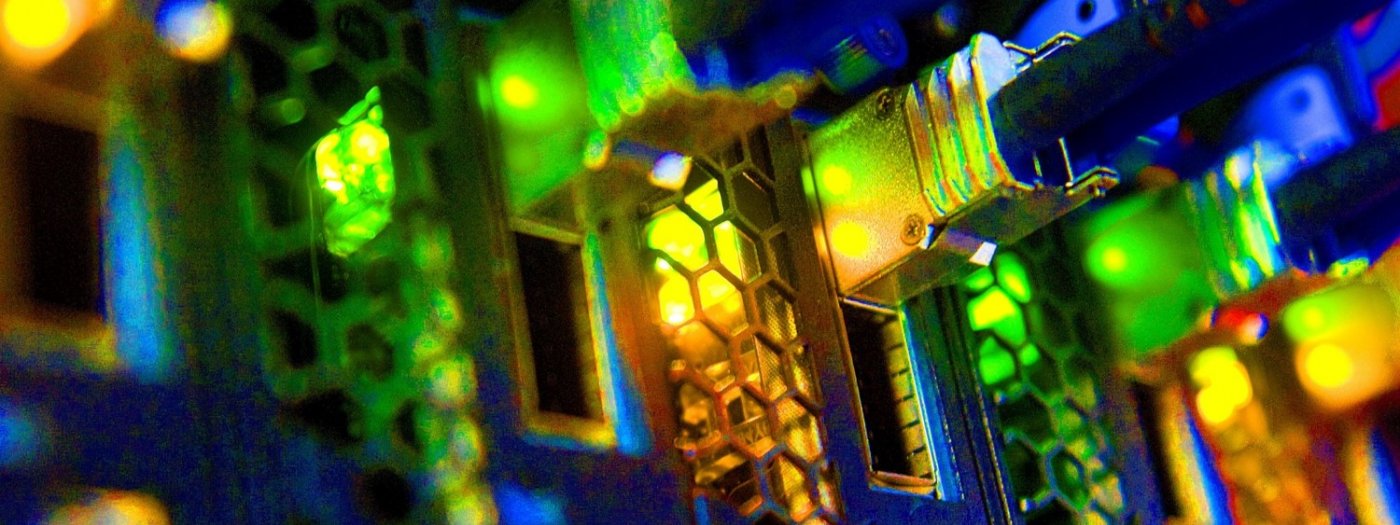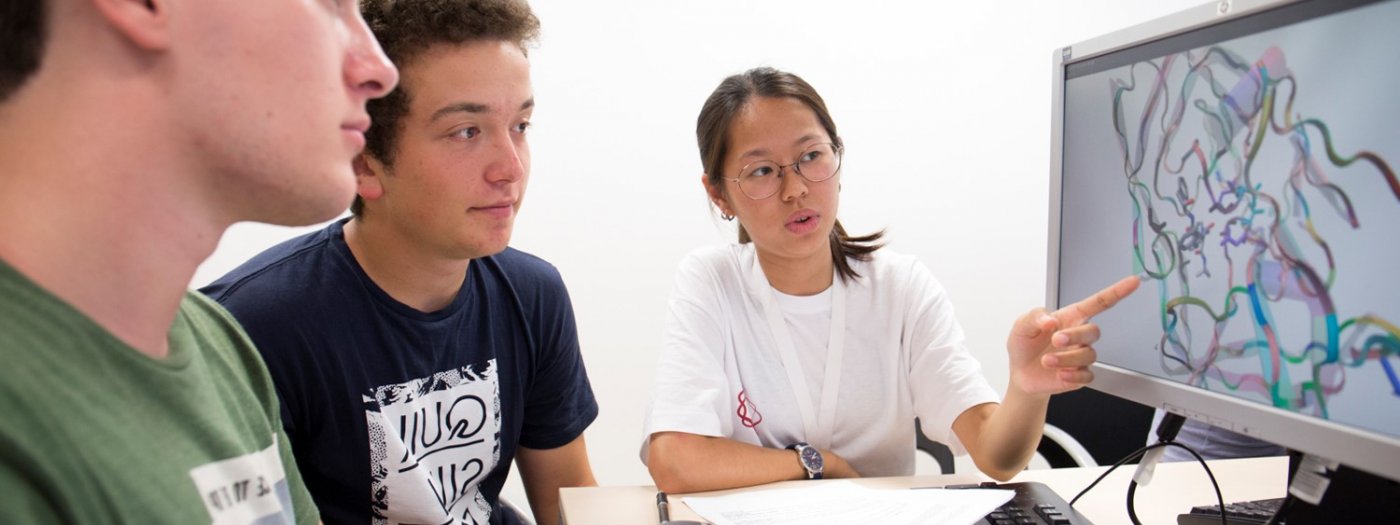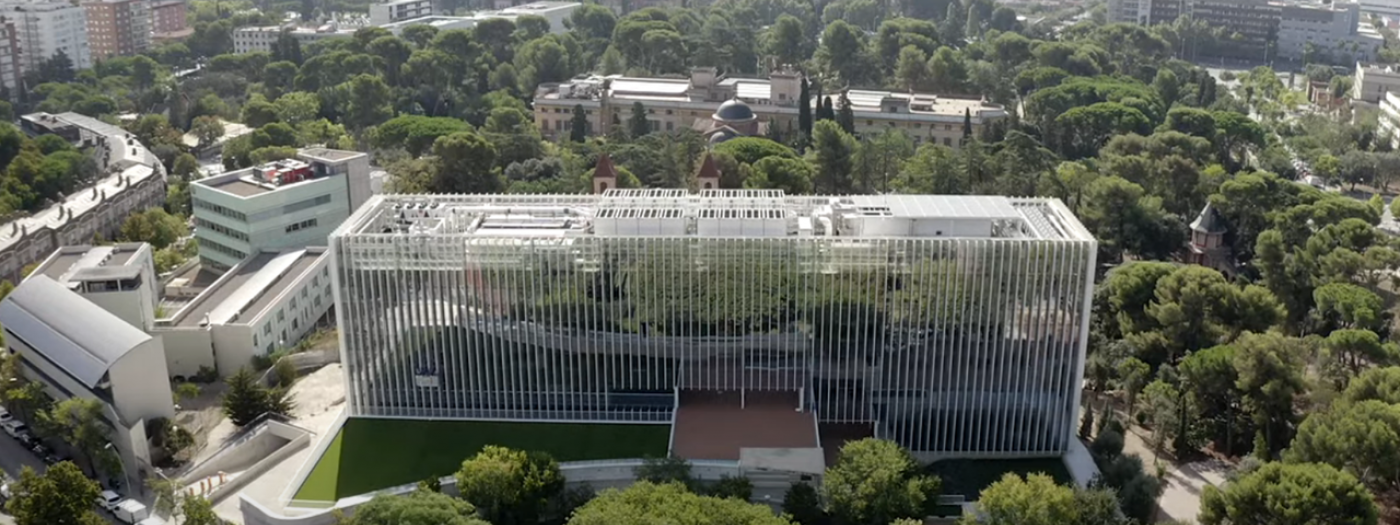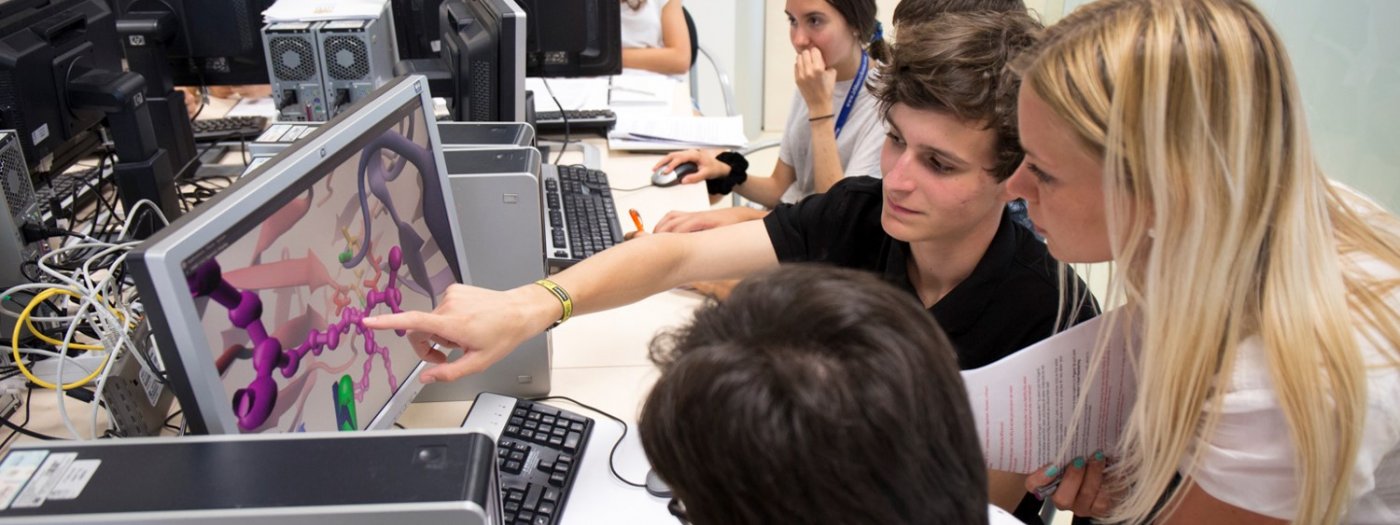Protein engineering to improve plastic-degrading enzymes
Plastics are durable materials that have allowed humanity to reduce the packaging costs of many products. However, this same durability becomes a significant environmental problem since most living organisms are not able to degrade plastic materials and obtain nourishment from them. Therefore, plastic residues end up in our natural ecosystems. Some bacteria, however, have developed some specialized enzymes that can degrade some of the most popular plastics.
Studying and improving these bacterial enzymes can influence new ways to dispose and recycle plastic residues, which would, in turn, reduce dramatically the environmental consequences of plastic accumulation in our oceans. In this project, we aim to study the enzyme machinery that allow the bacteria to degrade plastic, and design improved variants that can do so more efficiently.
By joining this project, you will learn how enzymes can perform their functions, by manipulating and changing their building blocks, the amino acids. In this way, you will be introduced to the boundless world of protein engineering and the tools from computational modeling supplies to impact real-world scenarios. For example, you will use a database, the Protein Data Bank, to visualize and manipulate the 3D structure of a protein. Moreover, several bioinformatic tools will be provided to study different aspects of the problem of interest.
First, you will learn how to prepare a protein in such a way that the simulation will reproduce the specified reactive conditions. Then, a Monte Carlo-based technique known as Protein Energy Landscape Exploration (PELE) will be used to simulate the interaction between several variants and the substrate to differentiate between active and inactive enzymes. Moreover, you will learn to analyze the data obtained from your simulations and draw conclusions.
Finally, you will apply these techniques for a real case. You will simulate the mechanism of a bacterial plastic-eating enzyme. Then, you will propose your variants to improve the plastic cleaning process, considering the data obtained in the previous simulations. At the end, you will check your hypothesis comparing the simulations between the natural enzyme and your variant, and find out if your variant could be a potential candidate for plastic degradation!
Besides the experience of being a computational researcher, you will have the opportunity of visiting MareNostrum, which consists of a guided tour through the infrastructures of one of the largest supercomputers in the world.
Join this project and be part of a real enzyme engineering investigation!
This project is addressed to students interested in Chemistry, Biology, Biochemistry, Computer Science or Bioinformatics
- Understand the chemistry behind plastic degradation
- Basics of rational design in enzyme engineering
- Get introduced to the most used bioinformatics tools in enzyme engineering
- Laptop (minimum hardware requirements: x86_64 compatible processor; 4 GB memory per core; 10 GB free disk space for software installation).
- Mouse
- (don't forget your plug and adaptor)








